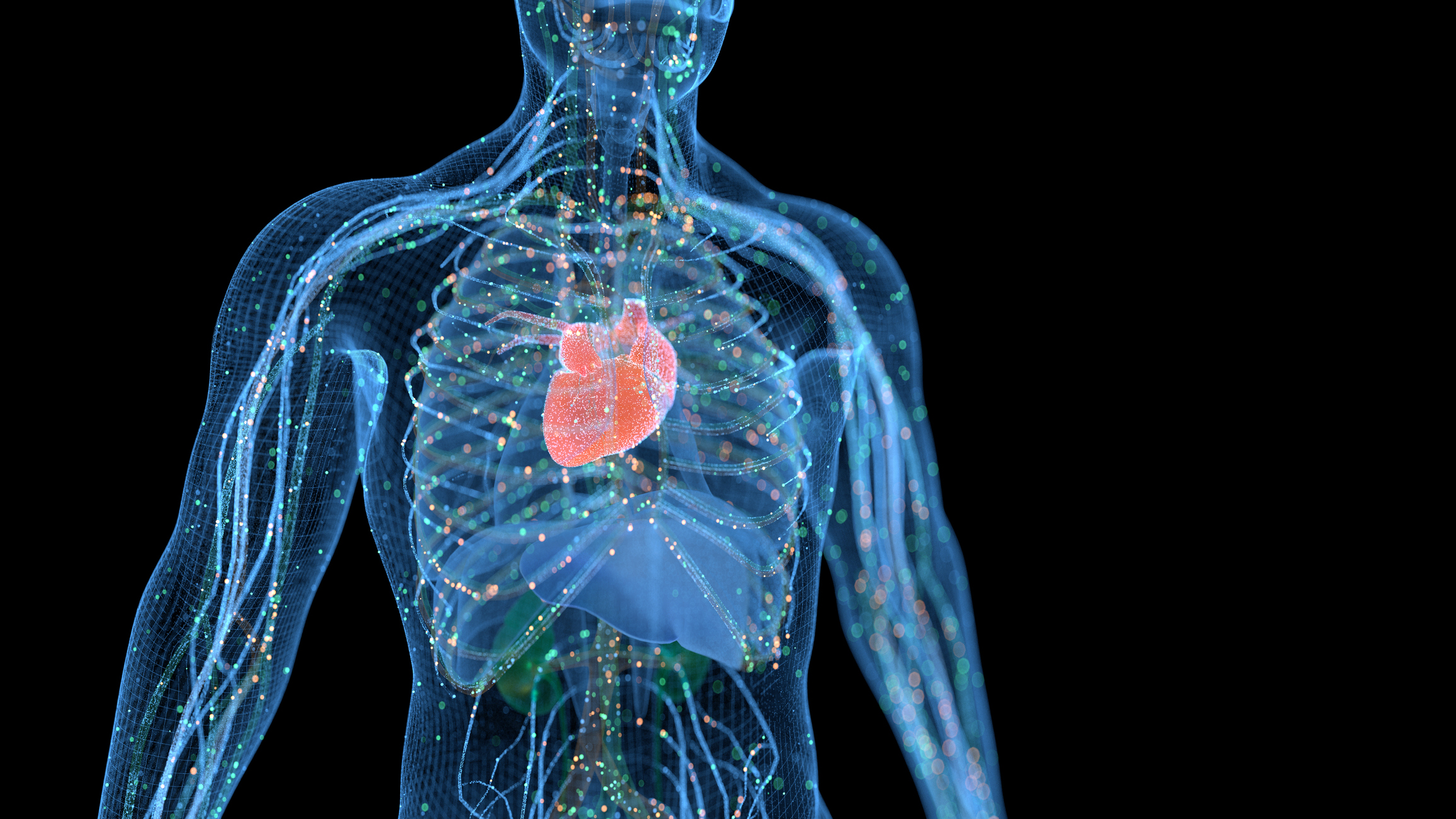Which vitamins boost the immune system?
Wondering which vitamins boost the immune system? We look at the nutrients that can help you to stay healthy

Understanding which vitamins boost the immune system is imperative. After all, our world is not sterile. Every day, we are exposed to a myriad of harmful microbes that are constantly evolving to get better at infecting us.
Knowing the risks, we often try to do everything in our power to protect ourselves from falling ill. We might put on a jacket, drink some hot tea and head to a pharmacy for some reinforcements. But do we know which vitamins boost the immune system? And is it even possible to fight off a cold with certain nutrients, or is it just a marketing gimmick?
It’s hard to understate the role that nutrition plays in maintaining our health and wellbeing. Studies have shown that a diet that consists mostly of wholefoods and provides a sufficient amount of good quality protein (our guide to the best protein powder can help if you’re struggling to meet your intake) is key to longevity and improved quality of life. However, our immune system is arguably the most complex part of the human body apart from the brain and it may require more than getting few specific nutrients to keep it in peak condition.
Here, we’ll look at whether vitamins can really boost the immune system and which of these nutrients are important for helping you to stay healthy.
Can vitamins boost your immune system?
Your immune system works tirelessly to fight off any harmful bacteria and viruses that you come into contact with. It’s one of the most complicated and interconnected systems in the human body, with many different factors shaping your immune response. These include your genetic makeup, age, health status and stress levels.
Diet is one of the biggest contributors to a healthy immune system. A growing body of evidence suggests that the modern Western diet – high in sugar, salt and fat – may be to blame for a steep rise in chronic diseases across the world.
Your body needs an array of different nutrients to power up your defences and stay free from disease. But while certain nutrients do a good job in supporting the immune system, it’s not as easy as just popping a multivitamin pill every morning. If you’re serious about improving your immunity, you may need to implement lasting and far-reaching changes to your dietary habits.
Still, addressing vitamin and mineral deficiencies could be a good start. Micronutrients contribute to the body’s natural defences by strengthening its physical barriers (such as skin or mucosa), increasing the production of antibodies and improving ‘communication’ between cells. Some vitamins tend to be better at supporting your immune system than others too.
Ideal vitamins for boosting your immune system
Vitamin C
Vitamin C, or ascorbic acid as it’s also known, is a common ingredient you’ll find in many over-the-counter cold and flu medications. Vitamin C deficiency has long been linked to poor immune function and increased susceptibility to infections.
Studies also show that when your body is battling with an infection, supplementation with vitamin C may help you to recover faster, even when you’re already eating your recommended daily allowance of 75-90mg of ascorbic acid a day.
Vitamin C supports the immune system on multiple levels. Among other functions, it fortifies white blood cells, maintains a strong skin barrier and protects against oxidative stress.

“Getting an adequate intake of vitamin C can help to reduce lung inflammation, which may help you to tackle Covid-19 and other respiratory problems,” says Hussain Abdeh, clinical director and superintendent pharmacist at Medicine Direct.
Many people believe that citrus fruits have the highest concentration of ascorbic acid. They’re not wrong – a medium size orange contains nearly 70mg of vitamin C. However, certain vegetables can also be great sources. One bell pepper, for example, contains nearly 65mg, while 100g of broccoli provides more than 89mg.
- Related: Nine sources of vitamin C
B vitamins
B vitamins are essential to the existence of all life forms on our planet, from bacteria to humans. There are eight different types of B vitamin, and they are each responsible for a wide range of metabolic and regulatory processes. To put it simply, without B vitamins we wouldn’t be able to move, think, or build and repair any tissues in our body.
There is also substantial evidence that these nutrients play an important role in strengthening our immune system. Folic acid (B9) and B12 deficiencies can drastically alter immune responses by affecting the production and activity of white blood cells. They can also lead to a condition called hyperhomocysteinemia, which increases systemic inflammation and triggers many other diseases. A 2017 study also found that decreased levels of B6 negatively affect our immune system.
Thankfully, you can get B vitamins from most wholefoods. As long as you stick to a healthy diet that’s rich in whole grains, meat, eggs, legumes, seeds, nuts, fruits and dark leafy vegetables, you should achieve your recommended daily intake with ease.
Vitamin D
“Vitamin D was used unknowingly in the treatment of tuberculosis before antibiotics were introduced,” says Abdeh. “Cod liver oil and sunlight exposure were used to treat tuberculosis – both of these treatments are rich in vitamin D.”
Vitamin D deficiency has been linked to an increased risk of developing several autoimmune disorders, including psoriasis, multiple sclerosis and rheumatoid arthritis. What’s more, this micronutrient helps with activating and proliferating white blood cells, strengthening our defences against various diseases.
Red meat, liver, egg yolks and oily fish, such as salmon, sardines and mackerel, tend to contain the highest amounts of vitamin D. If you’re not a fan of animal based foods, don’t worry. Many countries add vitamin D to food items such as breakfast cereals, plant-based milks or mushrooms to prevent deficiencies in the general population.

Zinc
Zinc, though technically not a vitamin, is one of the most important nutrients for our health. It's essential for our growth, development and the functioning of our nervous and reproductive systems. Without zinc, our immune system will suffer too.
Research suggests that zinc has a direct effect on the production and function of white blood cells. It may also act as an immunostimulant – a component that’s able to increase the effectiveness of the immune system responses. Furthermore, many studies have shown that zinc may exert anti-cancer properties, mostly through protecting and repairing DNA strands.
You can find zinc in many common food staples, such as whole grains, dairy products, meat, lentils or nuts. Many food items, breakfast cereals in particular, tend to be fortified with this nutrient as well.
- Related: 5 ways to improve gut health
- Related: How to boost your immune system naturally
How to integrate vitamins into your daily diet
While vitamin supplements may sound like an easy fix, the best way to ensure a sufficient intake of essential nutrients is to maintain a healthy and balanced diet. Your body tends to absorb and utilise vitamins better from food, while supplements can be of differing quality.
However, eating a balanced diet may not always be feasible, and it’s possible to still be deficient in a nutrient even if you eat a healthy diet. In this case, vitamin supplements can come in handy.
And while nutrition will definitely play an important role in building a strong immune system, if you want to maximise your chances of avoiding an infection, you may need to address other aspects of your lifestyle too.
“Rather than thinking about boosting the immune system, it is better to think about keeping it healthy and balanced,” says Jenny Tschiesche, nutritionist and consultant for Nutriburst. “Ideally, this balance will be created through both nutrition and lifestyle interventions. Not only do you need to eat and drink well, but there are other important aspects of your health and wellbeing that need addressing for balance. Sleep well, digest well, reduce long term stress, stay connected to friends and eat mindfully."
Sign up for the Live Science daily newsletter now
Get the world’s most fascinating discoveries delivered straight to your inbox.

Anna Gora is a health writer at Live Science, having previously worked across Coach, Fit&Well, T3, TechRadar and Tom's Guide. She is a certified personal trainer, nutritionist and health coach with nearly 10 years of professional experience. Anna holds a Bachelor's degree in Nutrition from the Warsaw University of Life Sciences, a Master’s degree in Nutrition, Physical Activity & Public Health from the University of Bristol, as well as various health coaching certificates. She is passionate about empowering people to live a healthy lifestyle and promoting the benefits of a plant-based diet.










